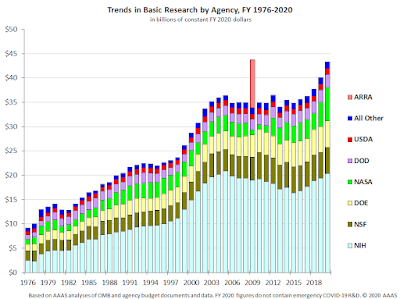The latest news around the controversial publisher MDPI, from Katarina Sam on Twitter:
Our uni made official statement about publications in MDPI journals: Such papers will not be funded, supported, and considered as a valid scientific result. We were also recommended not to do any services for them.
From her Google Scholar page, Katarina appears to be at the University of South Bohemia (which is an awesome name, incidentally). When I search for “University of South Bohemia MDPI,” I can’t find any official statement. The first page of hits is a list of MDPI articles where one or more authors have an affiliation with the University of South Bohemia. Searching the university website also returns no policy statement, but a few articles publihsed in MDPI journals.
I am interested in the policy statement because this seems to me to be very weird and very bad.
I was under the impression that the ability to choose which journals to publish in was part and parcel of academic freedom. Indeed, one of the arguments against open access mandates from funding agencies and others was that it compromised academic freedom. But I think people made a fuss there because such mandates meant they wouldn’t be able to publish in glamour mags like Nature and Science.
Here, I am less sure people are going to make a fuss because a lot of people... dislike MDPI.
I am very, very nervous about an institution trying to ban its faculty from using, not a single journal, but an entire publishing company.
I think MDPI will be outraged because the people in charge seem to have thin skins, but I don’t think they will be harmed much. MDPI clearly has authors who value their services.
I’m more concerned by the harm this precedent sets.
Update: Charles University has a vice-dean writing blog posts about MDPI. Not so much policy, but an expression of concern, I suppose.
But what’s the point of noting that MDPI is a “Chinese company (with a postal address in Basel, of course).” How is national origin relevant to the quality of an academic publisher? What is being implied here?
More edits: The National Publications Committee of Norway (they have one of those?) announced a new listing for dubious journals: “level X.” The article begins by singling out an MDPI journal that got added to the list.
I was about to tweet earlier today that “I wonder if the push against MDPI was because an institution was unhappy about paying open access fees.” And sure enough:
The phenomenon Røeggen refers to is open publishing with author payment. - Many are worried about the phenomenon. Not for open publishing, which I experience that there is great support for in Norwegian research, but the solution we have received in open publishing where the institutions have to pay when the authors publish, says Røeggen. ...
In recent years, the requirement for open publication, through national guidelines and the so-called Plan S, has created a significant shift. Now more and more money is being paid for publishing, instead of paying to be able to read the magazines.
Emphasis added.
And I’ve said it before, but I’ll say it again: It is weird to me that academics will bitch and moan about how long journal reviews take (“Careers are on the line here! People’s lives are put on hold because reviews take so long!”), but then consistent and prompt review is used as a reason to suspect a journal.
Questions have been asked about the rapid pace from submission of manuscripts to publication and that this is in line with research quality.
MDPI is not alone here, though. Frontiers publishing and more traditional publisher Taylor & Francis also have journals making the “level X” status. Norway is also avoiding the “carpet bombing” approach taken by the University of South Bohemia.
Still. This is not a great week for MDPI specifically and perhaps for open access more generally.
Related posts
My resolve not to shoot the hostage is tested
External links
The same week that the researchers' article was published, the journal ended up on the gray zone list (Automatic translation of Norwegian title; article in Norwegian, naturally)

















